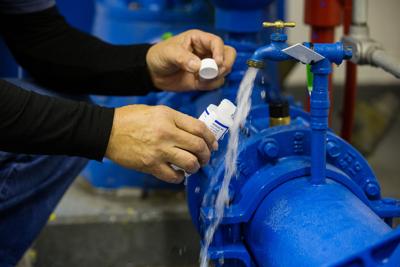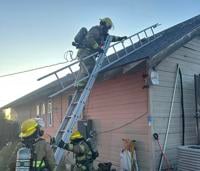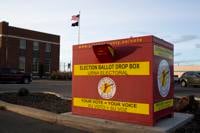GRANGER — A $1 million grant from the Environmental Protection Agency will allow health officials to increase education and outreach around groundwater and air quality in the Lower Yakima Valley over the next three years.
The grant, which was awarded to the Washington State Department of Health, was one of 10 given in the state to address environmental justice issues.
The DOH will partner with the Yakima Health District with support from Yakima County Public Services, the Northwest Communities’ Education Center, Heritage University and Central Washington University. Initial efforts will focus on testing water wells in the area for nitrates.
Since the early ‘90s, studies done by county, state and federal agencies have found high levels of in groundwater across the Lower Valley.
A 2017 Washington Department of Ecology study that tested 150 private domestic wells in the area found that 20% of the wells exceeded the state’s drinking water standards for s.
During a news conference in Granger on Monday, Lauren Jenks, assistant secretary of the DOH’s Environmental Public Health Division, Lower Valley residents with private wells can expect a letter in the mail from Yakima County Public Services asking for permission to test their water in January.
A first round of 250 letters will be sent out starting Jan. 16 to residents living in the areas at greatest risk for contamination. The letters will contain a test strip for residents to check their water and instructions in English and Spanish on how to schedule follow-up testing.
The DOH estimates there are about 5,000 private wells in the Lower Yakima Valley and parts of Benton County, where the program will operate.
“We know that people who are on private wells may not know whether their wells have exceedances in them,” Jenks said. “What we would love to do, is find a way to test everybody’s well, find out whether there is too much s in them and then help people get connected to other sources of water like bottled water or some other way to get clean water.”
The Yakima Health District has been distributing bottled water to 47 households with levels in their water that exceed the state’s allowed minimum of 10 milligrams per liter through its drinking water pilot program since 2022.
The grant funding from the EPA will not go toward expanding the program, though health district officials said Lower Valley residents with high levels will be connected to other alternative water programs in the state.
DOH and health district officials said they are working to get additional funding for the drinking water pilot program.
During the health district's December Board of Health meeting, officials said part of the grant would go toward providing air filters and water filtration systems for affected residents.
On top of testing, the grant money will also go toward expanding education and awareness of the contamination in the Lower Valley and its effect on residents, said Andre Fresco, the health district’s executive director.
“We found that there are many well-intentioned programs that haven’t reached people because they were unaware that resources were available to them,” Fresco said. “Part of our goal is to reach people and to allow them to make informed decisions, to include them in the conversation and make them aware of what is possible. That’s as important to us as the actual testing.”
Though occurs naturally in soil, heavy and extended use of fertilizers, including cow manure, can dramatically increase levels in the groundwater underneath the soil.
According to the Centers for Disease Control and Prevention, exposure to high levels can decrease the blood’s ability to carry oxygen. This can lead to conditions like methemoglobinemia, also known as blue baby syndrome.
Chelan County, Tacoma Public Schools and the Palouse Conservation District were among the other organizations to receive EPA grant funding totalling $8.4 million.
Editor's note: A previous version of this story stated the letters to residents would start being sent out on Jan. 8 by the DOH. The story has been corrected to clarify letters will be sent out starting Jan. 16 on behalf of Yakima County Public Services. It also clarifies that well testing will be done to detect only Nitrates in the water.









(0) comments
Comments are now closed on this article.
Comments can only be made on article within the first 3 days of publication.